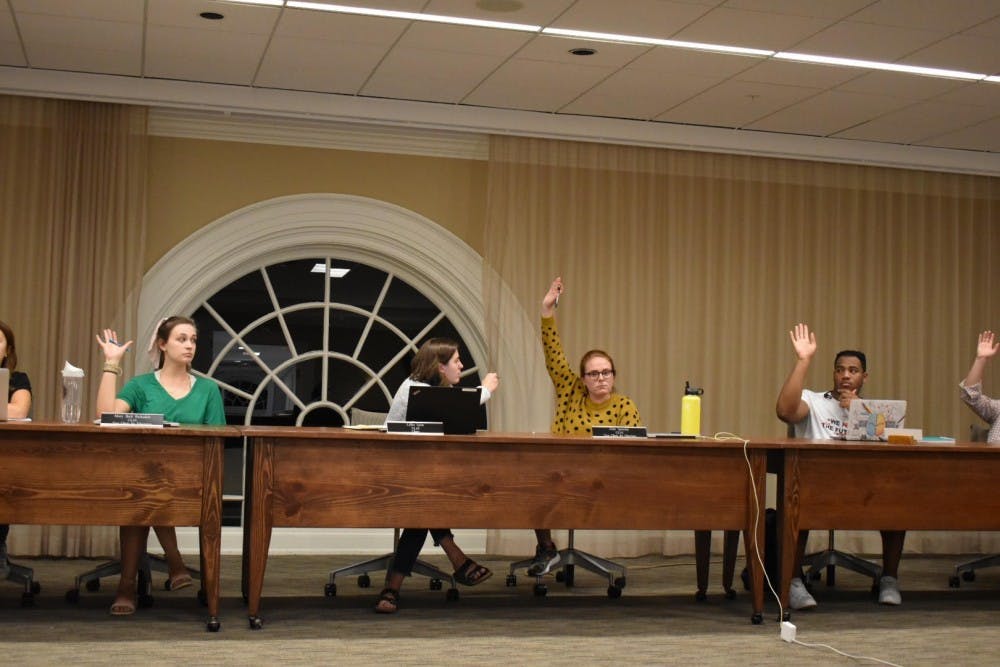The Honor Committee passed two proposed bylaws regarding non-degree students and administrative abilities of the executive committee during its meeting Sunday night. The decisions were unanimous, and the changes were put into effect Monday.
The non-degree student bylaw clarifies Honor Committee’s jurisdiction over students seeking certificates and specific program credits, such as iXperience — an accredited summer abroad program in South Africa, which combines liberal art studies with skill-based learning through internships and professional training opportunities. The bylaw also applies to certificate-seeking students in credit-granting programs, such as in the School of Continuing and Professional Studies.
There has been one previous amendment affecting non-degree-seeking students that was passed last spring, specifying that students enrolled in credit-granting certificate programs could serve as Honor Committee representatives. Prior to that amendment the bylaws specified that Honor Committee representatives must "be a student enrolled in a degree program in the school or department they represent."
This new proposal specifies that non-degree students are still University students, and the Honor Code still applies to them.
Lillie Lyon, a fourth-year College student and chair of the Honor Committee, said non-degree students accused of honor code violations will undergo the same trial procedure as other University students.
“The sanctions that the community can apply will apply to them to the greatest approximation of what they're getting out of it,” Lyon said. “So we could revoke a certificate in the same way that we would a degree, or recommend degree reputation proceedings for students found guilty after graduation.”
The Committee also passed a housekeeping and amendment bylaw. Prior to the new policy, any amendment to the Honor Committee's bylaws had to pass with a majority vote of the Honor Committee. Now, the executive committee can make housekeeping updates without a vote of the entire Honor Committee, as long as the entire Honor Committee is made aware of such amendments at least 24 hours prior to their adoption.
“For example, if we omit an important word, and it's clear what that word might be, we could add it back in,” Lyon said. “Instead of going to the committee and having that whole discussion process and doing the formal vote, the executive committee can just take care of those.”
The Committee also discussed a new internal disclosure policy that requires the support officers to report their disciplinary violations to the committee. The goal of this policy is to keep the committees abreast of any potential behavioral and ethical misconduct.
“We want to ensure that the people who are working for the committee are exemplary in behavior,” Lyon said. “If any concerns do arise, we want to make sure that we’re handling it appropriately and the first step is making sure that we're aware of them.”
Stephen Paul, a Law School representative for the Honor Committee, said that he is in favor of the disclosure policy and that it is crucial for the support officers who work with accused students to report their own disciplinary violations to the committee.
“The support officers and committee members are in a position of trust with respect to UVA community,” Paul said. “It’s appropriate for at least a portion of the committee to know what sorts of potential legal or disciplinary issues these people may be facing, given the really important role they have protecting the rights of accused students.”
The Committee disagreed on what degree officers should be held accountable for disclosure.
Lyon stated that there needs to be an enforcement mechanism in place, such that if support officers do not disclose their disciplinary proceedings to the committee, they will no longer be able to participate in Honor.
Alex Spratley, a fourth-year College student and vice chair for hearings, expressed her concerns as to how this policy could be wrongfully utilized to remove Committee members. Paul agreed, saying the Committee should be very specific in deciding what disciplinary proceedings should be reported and who they should be reported to.
“My worry about the suspension issues is that we'll be asking people to disclose once something has been filed and not once you've been found guilty of some act,” Paul said. “You can effectively neuter that committee, like someone can lobby a free, frivolous complaint against you, and suddenly we don't have a chair. We have somebody having to step in, and that may take two months to investigate, which creates a massive problem.”
The Committee will further discuss the details of this policy Oct. 13.







